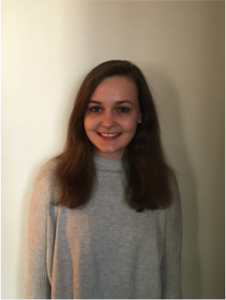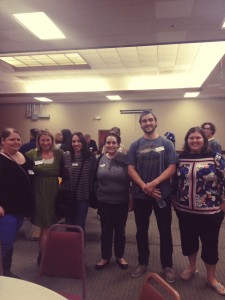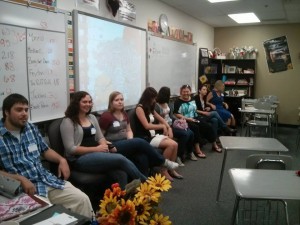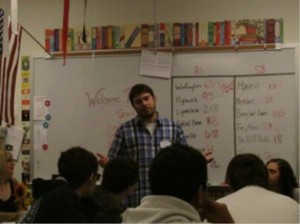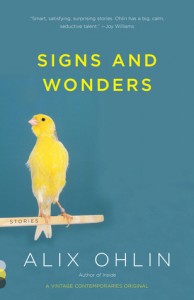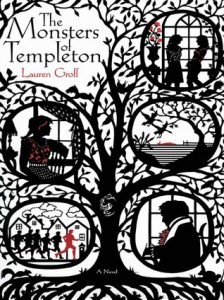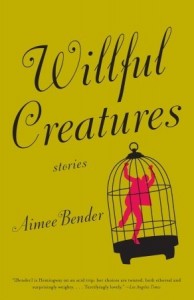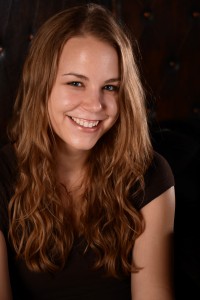The truth of the matter is that I am at least a week behind in three of my classes and just finally caught with up the other three. In more detail, I’d say that I still need to read Beowulf and haven’t even begun to read the essays and poems by the masters of the Harlem Renaissance and that upcoming exam, the one that takes places either on a Thursday or Saturday, is worth 100 points, like all the others, and I’ve already missed one. 100 points is just how it sounds: significant. Don’t even get me started on the History of Medieval Inquisition. The textbook for that class has an uncreased spine and, as I write this, is holding up my half empty can of soda. I will be, by the Arizona Fall, a collector of the most expensive coasters, paper weights and bug killers you can find, the kind you can only buy after waiting for an hour in a gold and maroon line at the Textbook store. That’s to say I am not making improvement. That’s to say there hasn’t been progress. But there has – I just have a hard time of seeing it. And the grades, so easy to derail, are slow on the incline.
Let me back up. I have taken more classes than I can handle. Let me back up again. I have not adequately prepared for the classes which I am taking. I am sure I can handle them, with a little bit of care, with a little less time spent at work. They are random classes, being used to fill up the elective space on my DARS report. They range from Mythology to Geography to Beginner’s German and only one class, really, can be said to be about English literature, which is my major. Still, they involve reading and note taking and, because of my job, which requires more of my life than I’d like to admit, all of these classes are online. Over the summer, I bought a new writing desk and stocked it with paperclips and a desk calendar, nearly a yard long, with fist sized spaces for each day of the month, that is now blank. I tried it for August and the beginning of September and I tried sitting at the desk and keeping my mind on the discussion board in front of me. But, it didn’t work. I’d suddenly remember that I hadn’t vacuumed in a while or that I need to Google the “paleo diet” to find out what it is and see why everyone is going so crazy over it. Then I’d get tired and cross the day off the calendar, moving the tasks onto tomorrow and go to bed.
This is my first year at ASU. I came from Mesa Community College, where I was a full time student taking one class a semester online, the rest on campus. I passed everything easily, except for math, which, I used to joke, is how one decides to become an English major. I did the homework, of course, and studied for the tests — though never for very long — and always with a TV show on in the background or with music playing. I can’t read in silence. I will fall asleep. Nine times out of ten, I will fall asleep, no matter what I am reading, no matter if I love it and can’t wait to see how the story plays out–I am dead asleep two to three pages deep.
Now, at ASU, I am behind. The kind of behind that has me a little worried. I am behind when you don’t want to be behind. You can be behind at community college. They won’t tell you that, and I probably shouldn’t say it, and I mean no offense, but it’s true. You can be behind there for a pretty long time before you have to worry about failing. But now I am at ASU and now I am behind and the semester seems almost over–is it almost over?–and I can’t tell you what I’ve learned except a few blurbs about this topic and that topic and I know all of the history, I just don’t know the dates or names. I am so behind I’ve pulled all nighters and fallen asleep at work, scrunched down in my office chair while on a conference call. I’ve been woken up by co-workers and they joke that I must’ve been real drunk the night before. God, I wish it had been a case of being real drunk the night before.
How do I fix this? I can’t work less. I cannot change the ever shifting hours which come with retail, from working 7 am to 4pm, followed by a 1pm to 10pm, followed by another 7 am to 4 pm, then an 11am-8pm. And I can’t seem to find the time to be so completely alone with my homework. I can’t seem to do what I wanted to do with my first semester at ASU. That is, to pull a Jonathan Franzen. You know Jonathan Franzen. The guy who insulted Oprah, and also happened to write a few books. His books are long books and they are good, though I haven’t finished them because I keep falling asleep at the part where the flashbacks begin. He writes them on an old laptop using an old word processor. The genius even breaks the ports so he can’t hook his laptop up to the internet. He probably burns the wi-fi out of the air with a lighter and writes in log cabins with no electricity.
But I’m sorry, I’m no good at writing in cabins or reading in silence, or turning off the rest of the world and living solely and completely in one particular task. Most of it, I admit, is weakness. I am weak when it comes to movies and going out and listening to music and reading other books, other stories, stuff not on the syllabus. What am I to do? The only answer seems to be to try and study chaotically.
Let me explain. I like to stay up late and I read a little bit of each assigned text at a time, so as not to get bored and fall asleep. I am writing this in my bed, blankets over my body, pillow holding up my head, typing slowly and awkwardly, the kind of typing you do when it’s hard to move one hand but you don’t want to get up because you’re so damn comfortable. Did I mention that YouTube is open on the browser? Did I mention that, no joke, I really can’t get enough of Wrecking Ball by Miley Cyrus (not just for the video) and that last week, when I should have been writing about feminism in early African American literature, I was listening to thirty minutes of Eminem rap battling raps with other rap battling rappers? I now keep copies of stories and poems that I need to read at home, at work, and in my car. On really lucky days I get stuck waiting for the train to cross the tracks at Center and Broadway and can read three to five paragraphs on the the history of Vikings before traffic starts to move again. And, I am not kidding here, I keep most of my school books in the bathroom, stacked on top of the no-touch wastebasket. The more time I spend in the bathroom, the more reading I can do (I’ve only fallen asleep on the toilet once before) and if I get bored, as happens from time to time, I just put down the book and take out my phone and read BBC news or play Ruzzle or look at Instagram to see what foods my friends are eating.
After work, when it’s time write an essay or take a quiz, I click on the TV and put on my favorite show. Then I turn the volume down to barely noticeable and I keep it down until the funny parts comes up and then I turn it up and laugh. Then I turn it back down and continue on with my work.
Now, I am looking forward to the next semester where I can plan better. Now, I’m a big believer in partial credit, because it always seems to add up to just enough. I think that’s how I have resorted to getting things done: a partial bit at a time. I like to write the beginnings of my essays on the yellow legal pad we use to write up action plans at work. I read the prompts to my discussion board assignments before going to work, so during work, when I don’t need all of my mental capacity for the subject at hand, I form sentences in my mind, how I will answer the prompt later. I try to get at least 80% done with the question before I get home and type it up.
I don’t study. At least, I don’t sit at home and study. As you can probably guess, I usually fall asleep. I don’t need to count sheep, just notecards. Instead, I like to read a little and talk a lot about the little that I read. At work, instead of telling people about my weekend, I will tell them something I learned. A little bit of history or how to say something in German. This doesn’t make me the most popular person, but sometimes you find things out about other people, like which of your co-workers speak a foreign language and which of them never will.
It’s not about multitasking which, everyone loves to tell me, is technically impossible. No, it’s about not wasting the minutes of the day. It’s about stacking a little bit of work on top of a little bit of work until the entire task is done. It’s about connecting the five minutes I had of reading in the morning while drinking coffee to the ten minutes late at night I have for answering questions while waiting for the water to boil soft the hard pasta.
I am behind in my studies. At this very moment, I am behind. I am behind, I think, in this blog post. I am behind at work, which is hard to believe since it is only October and we are already almost done with setting up our Christmas displays. I have set up alerts on my phone for all the due dates of all my assignments for the rest of the semester but so far I’ve just been ignoring the alarm, like a text from an old friend I don’t talk to anymore. The desk calendar is still blank and most of my homework is done standing up. I just have to sit down to write it out. It isn’t a good thing to be behind, but I guess it’s better than being stagnant. That isn’t probably the best lesson to learn (and spread) but at least I’ll get partial credit and that will stack onto other credit until the task is done. And if you want to catch me sitting still, your best luck is to find me on the toilet, flipping through pages of Chaucer, looking for the parts I plan on quoting on the next discussion board, looking for the parts that sound right.

